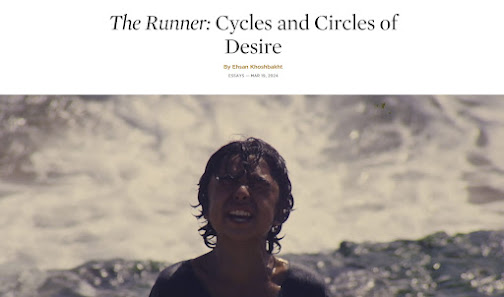Friday, 29 March 2024
Thursday, 28 March 2024
The Lady with the Torch | The Centenary of Columbia Pictures at Locarno Film Festival 2024
During its golden age, Columbia Pictures produced some of American cinema’s most iconic films across a panoply of varied styles and popular genres. In 1924, the relatively small-scale motion picture company Cohn-Brandt-Cohn rebranded itself as Columbia Pictures. This new studio would eventually feature, as its masthead and in the preamble before each film, the Lady with the Torch, the Statue of Liberty-like female figure who was, at first, draped nobly in the American flag and has become recognizable to film lovers everywhere.
Organized in partnership with the Cinémathèque suisse, The Lady with the Torch will present the studio in all its glory, shining a light on lesser-known genre filmmakers like Max Nosseck or William A. Seiter, as well as celebrating major auteurs like Howard Hawks, Frank Borzage, Fritz Lang, Frank Capra, George Stevens, and John Ford, who made some of their most characteristic as well as most surprising films while passing through the studio. So too did its movies do much to hone and define the screen presences of treasured stars like Rita Hayworth, Jean Arthur, Rosalind Russell, and William Holden, and lay the groundwork for the new era of more intensely psychological acting that would come to dominate in the 1950s, working with a new generation of directors coming from the theater, such as Joshua Logan. Columbia Pictures was the home – intermittent or otherwise – of figures as diverse as Boris Karloff, the Three Stooges and George Cukor, Ben Hecht and William Cameron Menzies. Notably, it is also where Dorothy Arzner, one of only two female filmmakers to work in the classical era of Hollywood, produced some of her most pioneering works. It is to this varied spectrum of artists, performers, and beloved figures of fun that the Festival pays tribute.
Wednesday, 27 March 2024
Wednesday, 20 March 2024
The Runner's Second Run
 |
A dazed boy is standing on the beach, hollering at the ships leaving the Persian Gulf for other worlds. The vessels of escape, carrying oil tanks and dreams, are fading ghosts on a pale horizon. To overcome a world full of hostility and indifference, the boy must learn to run.
Amir Naderi’s autobiographical masterpiece The Runner (1984) was one of the first postrevolutionary Iranian films screened and celebrated internationally. The epic scene of boys racing across the oil field toward a cube of melting ice, their trophy, became the emblem of the new Iranian cinema that emerged in the 1980s.
Amiro is an orphan living in the southern Iranian port city of Abadan, working odd jobs until he realizes that he has to better his life by learning to read and to run—the first in recognition that other worlds exist, and the second in order to reach them. Paradoxically, this film that sizzles with the desire for freedom was made in 1983–84, the darkest years of Iran’s recent history, when the grip of the Islamic regime on every aspect of life, including the newly nationalized Iranian cinema, became total.
Friday, 15 March 2024
The Walls Came Tumbling Down (Lothar Mendes, 1946)
The biblical title ("When the people heard the sound of the trumpet, they raised a great shout and the wall fell down." Joshua 6:20) has actually very little to do with the story of this drab and cut-rate mystery film, except its ending.
Something to Live For (George Stevens, 1952)
Playing on May 29 at Closeup Cinema in London. EK
This one of the crowning jewels of American cinema, nearly as good as the best of Roberto Rossellini with Ingrid Bergman, is strangely one of the least known masterpieces of the 1950s.
Friday, 8 March 2024
Anatole Litvak Retrospective at Il Cinema Ritrovato
.jpg) |
| Anatole Litvak with Deborah Kerr |
JOURNEY INTO NIGHT: THE WORLD OF ANATOLE LITVAK
An unjustly overlooked master with an international career spanning six decades, Anatole Litvak made some of the most riveting and innovative films in the history of cinema that, save for a few titles, are hardly seen or discussed today. The Kyiv-born director of masterpieces such as L’Équipage and City for Conquest made films in Germany, France, UK and eventually Hollywood. This first-time overview of his dazzling career features films from all these bases of production, works that are ripe for rediscovery with their sweeping camera movements, long takes, ironic cutting, and splendid use of décor. Litvak’s films dive into a nocturnal world of flawed and unstable men and women whose identity crisis for Litvak reflects the crisis of the world between the Russian Revolution and the Second World War – a time of awakening and political turmoil that Litvak experienced first-hand.



.jpg)
